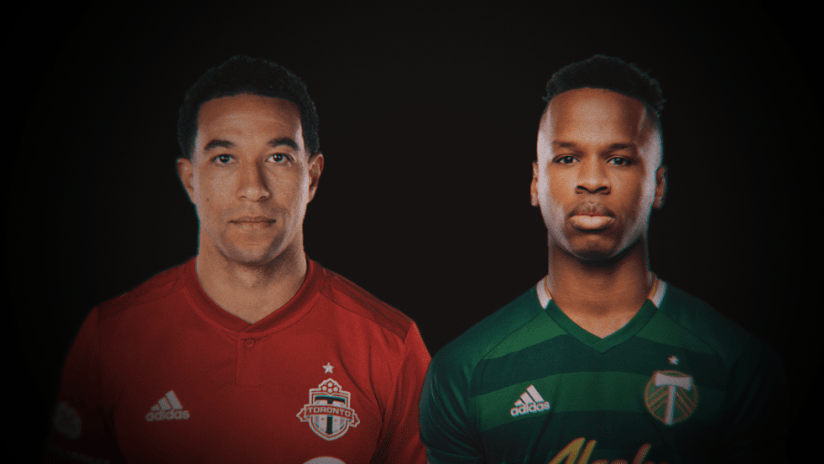Major League Soccer players Justin Morrow and Jeremy Ebobisse are at the forefront of trying to force cultural change in soccer and society beyond since the killing of George Floyd, a Black man, by a white police officer last month. That latest example of police brutality is what inspired the formation of the Black Players Coalition of MLS, the duo explained on the Stars and Stripes FC Podcast.
“Days after that, if not hours, we were able to get a significant number of guys together talking about the same things — do we feel supported by Major League Soccer? Are we happy with the way our representation is throughout the league in executive positions and coaching positions? What more can we do than just put out statements,” Morrow said.
The Toronto FC defender is the executive director of a group of 70-plus Black MLS players who hope to promote cultural education and combat systemic racism.
“This is what we came up with, an organization that was going to be able to be impactful, not only as joining together in a unity sense but also impactful in that we were going to create change through action and initiative which is going to change our world and Major League Soccer,” Morrow said.
Ebobisse said previously he felt alone in his pain and frustration after another Black person was “murdered in the street followed by the vilification of his character.” Now, the Portland Timbers forward said, he feels differently.
“It showed me there was a community of guys who felt the same way,” he said.
Ebobisse, who penned a powerful essay shortly after Floyd’s death, said one of the goals of the group is to go beyond symbolic gestures and create lasting change.
“We’re trying to influence institutions from the outside and from within in order for the next generation to have a little bit less to deal with as far as systemic racism,” Ebobisse said. “It’s a long process, but this one goes beyond a symbolic gesture, the pictures that we’ve seen from all the clubs, it's great to see the solidarity, but also what’s the next step? We didn’t want to just be caught up in a symbolic image, we wanted to be powerful in our intent.”
Change, Morrow said, can happen in the short-term.
“The things we needed to change were evident and they were all smacking us right in the face when we said, ‘Ok, what are the things we can actually change?’ We talk about changing the representation and Black representation in the Players’ Association or Major League Soccer, whether that’s on the coaching level or an executive level,” he said. “Those are things that stick out.”
Both players said they've also collaborated with Black American players that are part of the US men's national team pool and competing overseas, to keep them part of the conversation. Morrow has been in contact with former Columbus Crew SC goalkeeper Zack Steffen, while Ebobisse has had conversations with former New York Red Bulls standout Tyler Adams and Eric Palmer-Brown, who he said both feel a bit isolated being so far from home.
To listen to the full podcast, click here.







